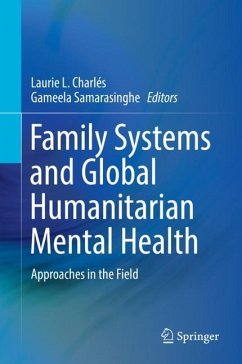
Mental Health of Refugee and Conflict-Affected Populations
Theory, Research and Clinical Practice
Herausgegeben: Morina, Nexhmedin; Nickerson, Angela

PAYBACK Punkte
68 °P sammeln!
This book provides an overview of theoretical, empirical, and clinical conceptualizations of mental health following exposure to human rights violations (HRV). There are currently hundreds of millions of individuals affected by war and conflict across the globe, and over 68 million people who are forcibly displaced. The field of refugee and post-conflict mental health is growing exponentially, as researchers investigate the factors that impact on psychological disorders in these populations, and design and evaluate new treatments to reduce psychological distress. This volume will be a substant...
This book provides an overview of theoretical, empirical, and clinical conceptualizations of mental health following exposure to human rights violations (HRV). There are currently hundreds of millions of individuals affected by war and conflict across the globe, and over 68 million people who are forcibly displaced. The field of refugee and post-conflict mental health is growing exponentially, as researchers investigate the factors that impact on psychological disorders in these populations, and design and evaluate new treatments to reduce psychological distress. This volume will be a substantial contribution to the literature on mental health in refugee and post-conflict populations, as it details the state of the evidence regarding the mental health of war survivors living in areas of former conflict as well as refugees and asylum-seekers.












